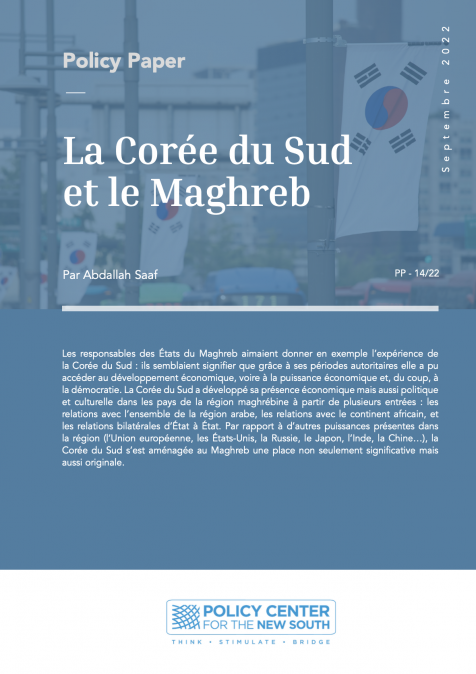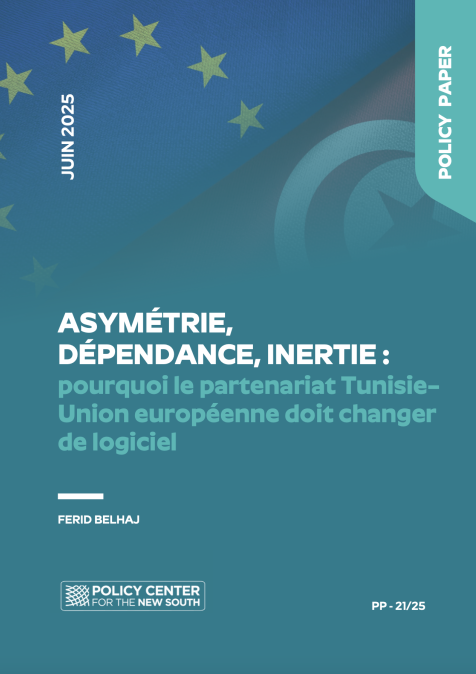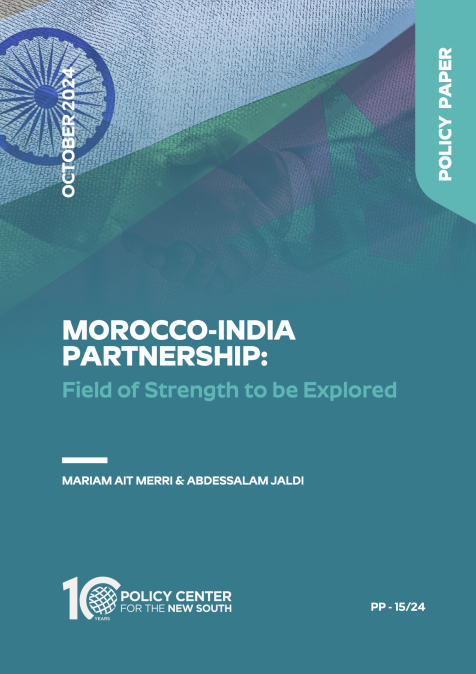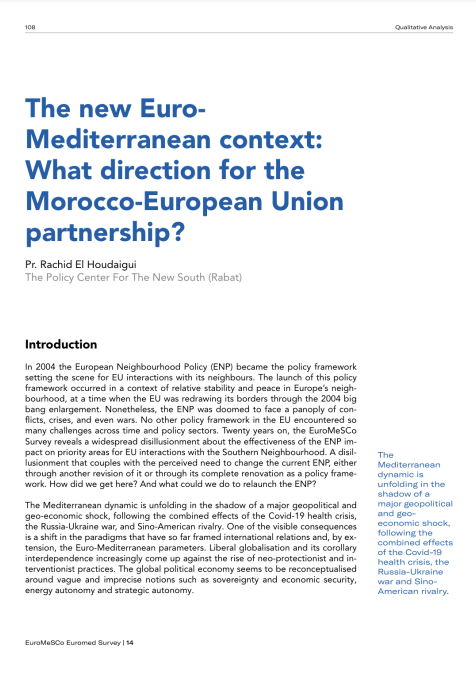Publications /
Policy Paper
Les responsables des États du Maghreb aimaient donner en exemple l’expérience de la Corée du Sud : ils semblaient signifier que grâce à ses périodes autoritaires elle a pu accéder au développement économique, voire à la puissance économique et, du coup, à la démocratie. La Corée du Sud a développé sa présence économique mais aussi politique et culturelle dans les pays de la région maghrébine à partir de plusieurs entrées : les relations avec l’ensemble de la région arabe, les relations avec le continent africain, et les relations bilatérales d’État à État. Par rapport à d’autres puissances présentes dans la région (l’Union européenne, les États-Unis, la Russie, le Japon, l’Inde, la Chine...), la Corée du Sud s’est aménagée au Maghreb une place non seulement significative mais aussi originale.








